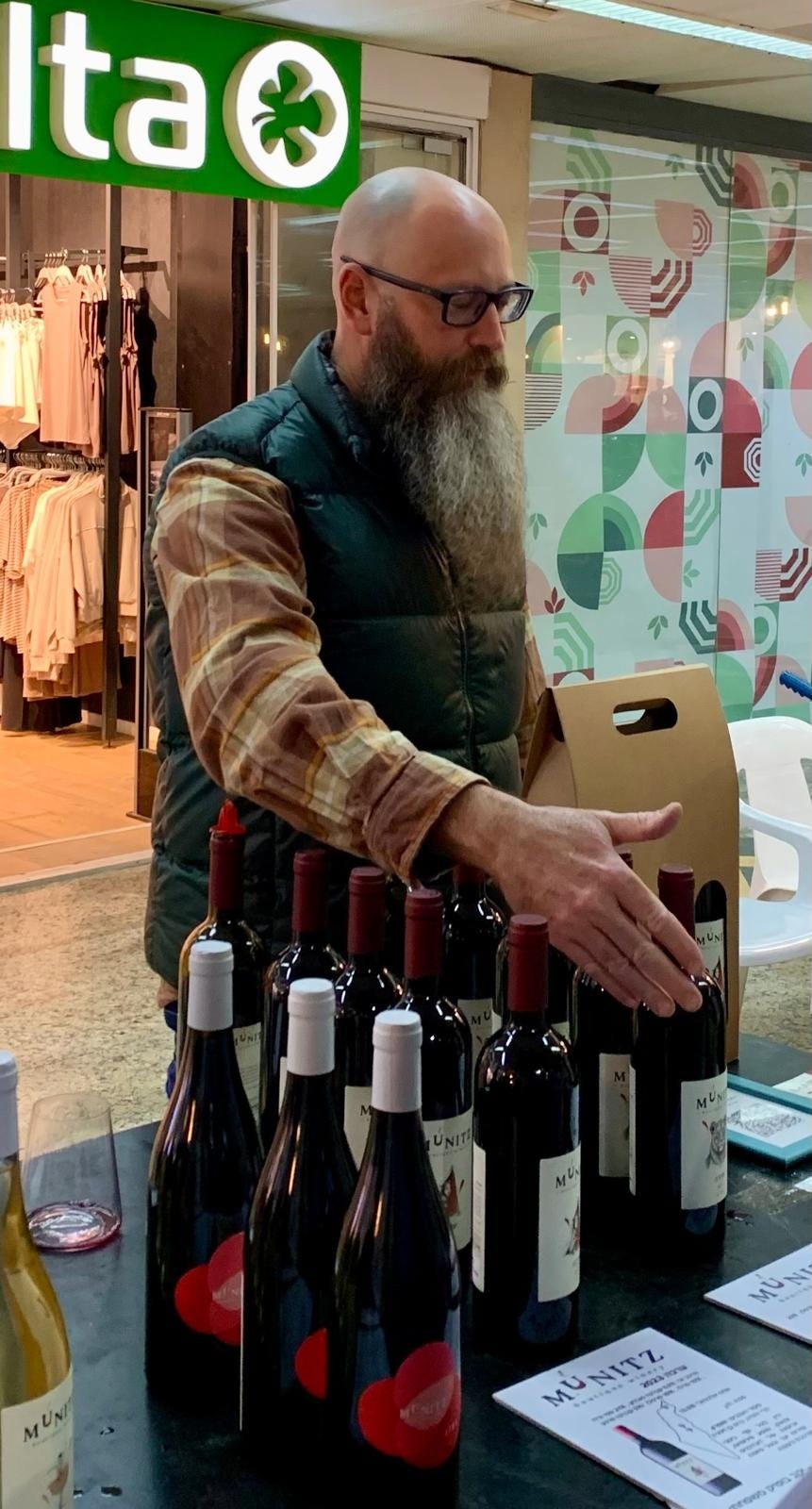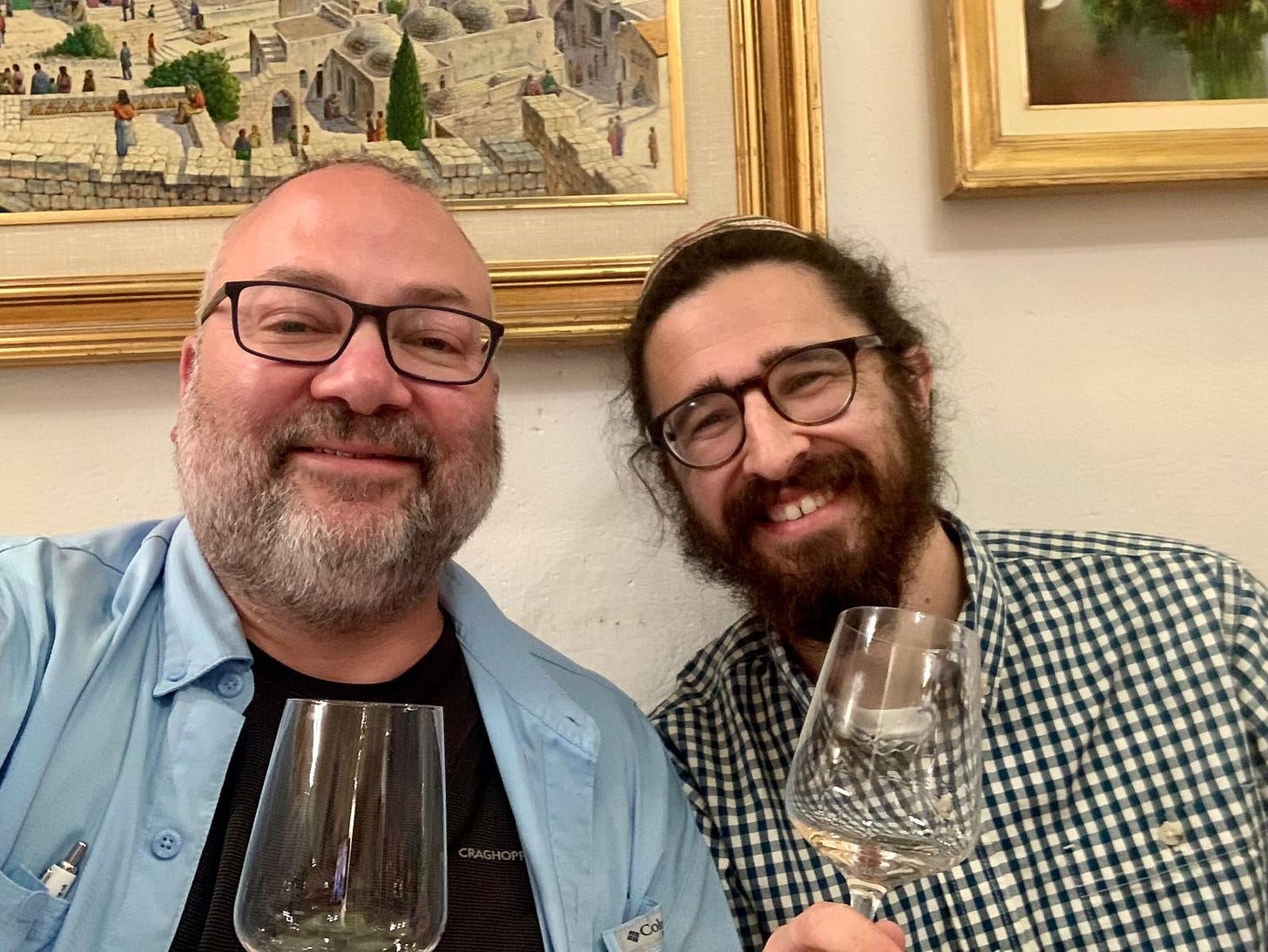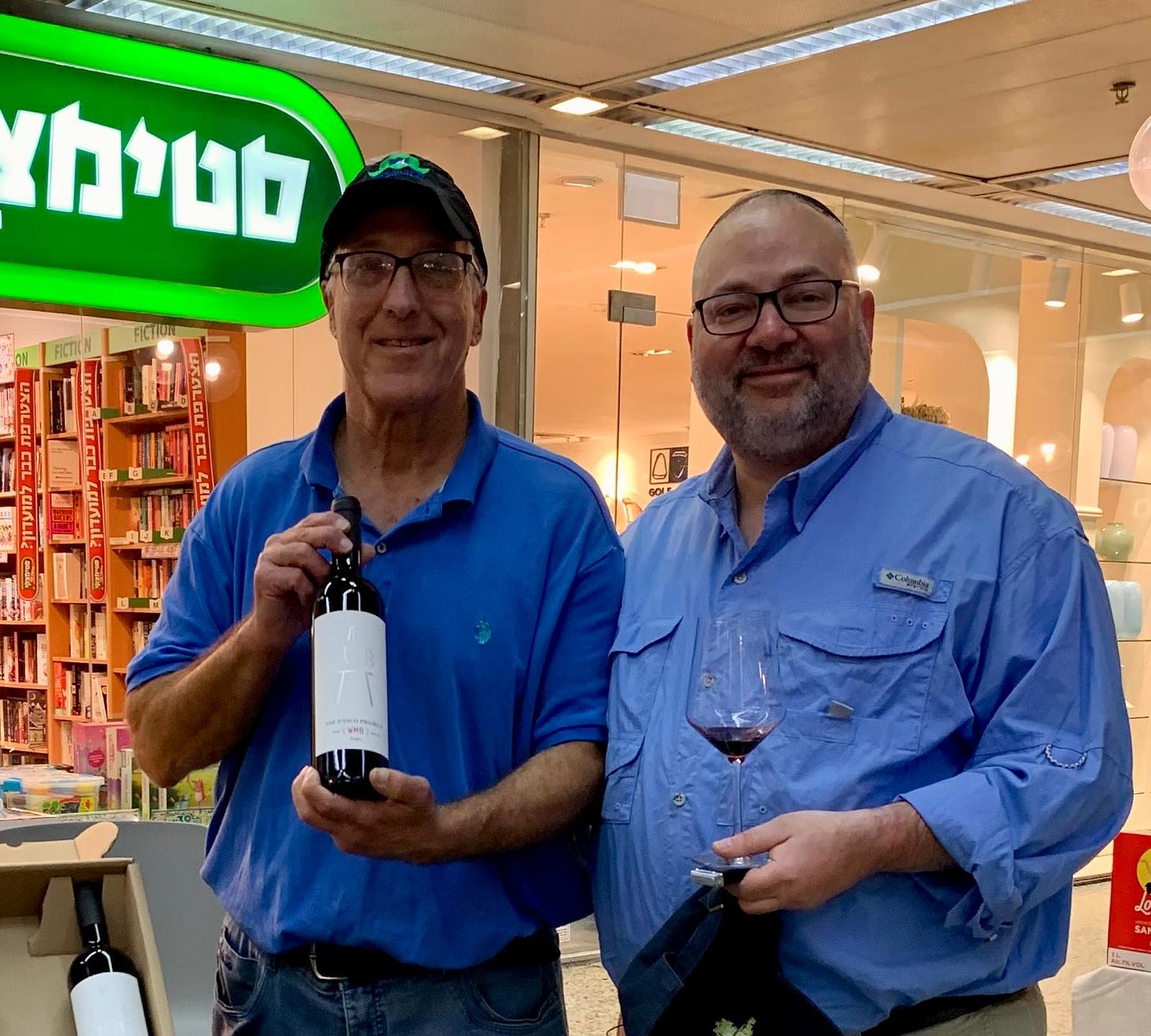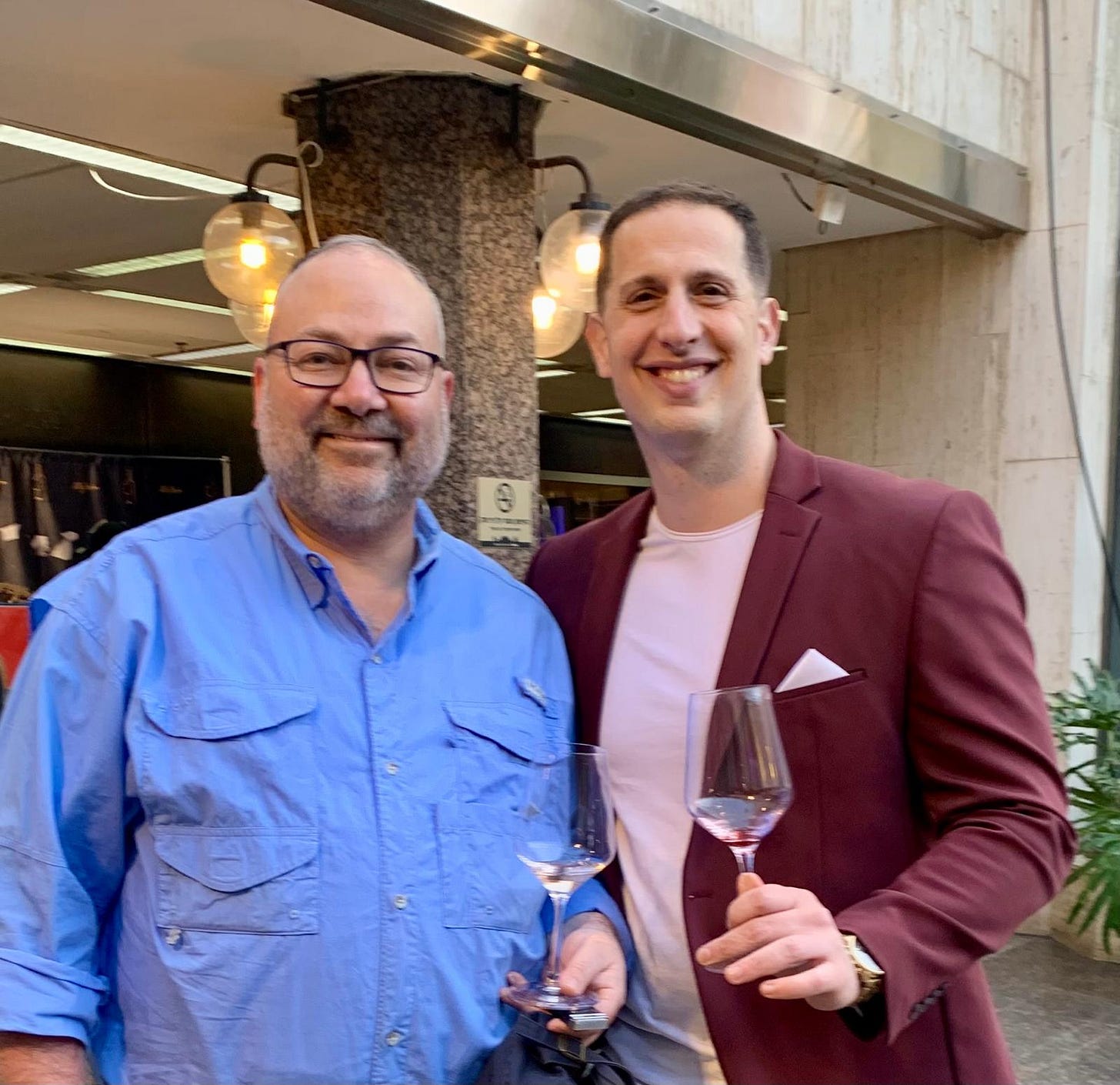Drinking L’Chaim in the Shadow of Fire...
One of my articles from just a couple of months ago that now seems a lifetime ago yet remains relevant
Note: A version of this article originally appeared in the Summer 2025/Sivan 5785 Jewish Link’s Summer Food & Wine Guide magazine (pp. 18-21), a publication of The Jewish Link newspaper. The ongoing Israeli war to neutralize Iran’s nuclear weaponization and ballistic missile threat makes this all seem like a lifetime ago to many of us in the Diaspora. Still, I gather that amongst Israelis the desire to carry on as “normal” as possible continues apace — and best I can tell from this distance, the substance of this piece holds.
On a recent visit to Israel, I dipped into the wine festival circuit, engaged with a variety of wine industry people, and explored the wine landscape to get a sense of Israel’s contemporary wine scene.
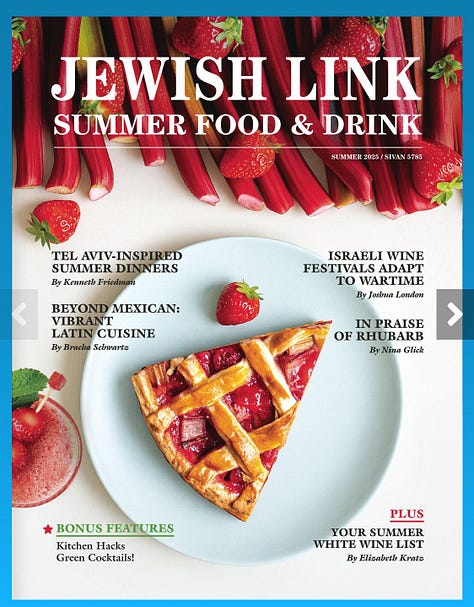

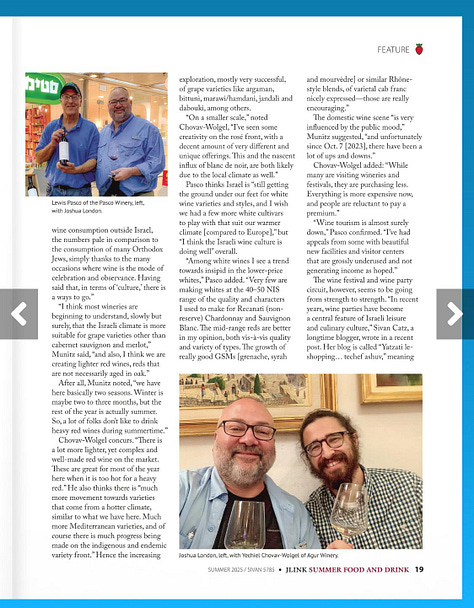
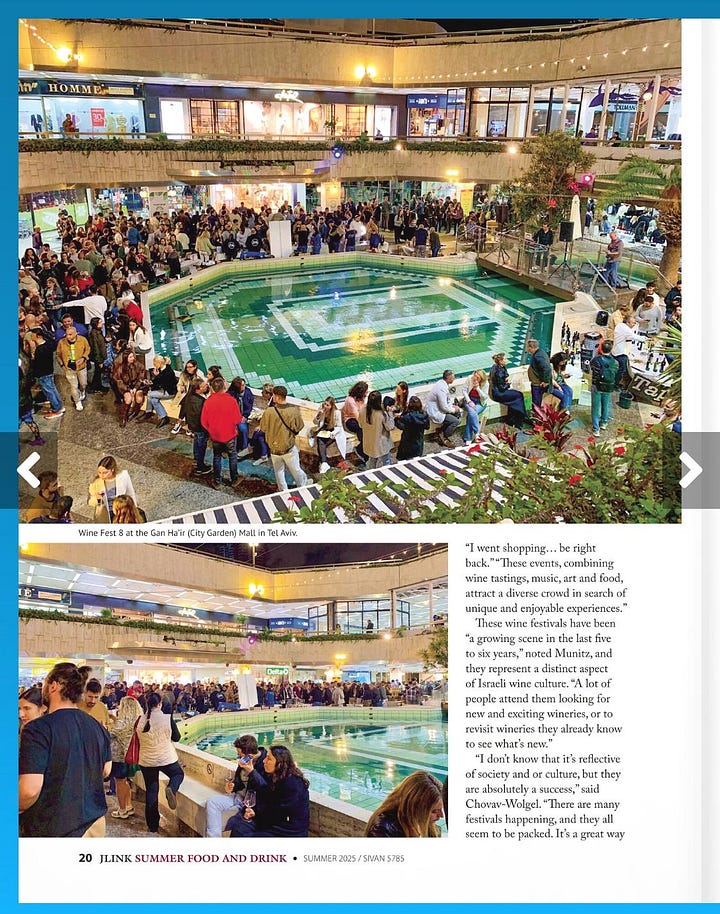
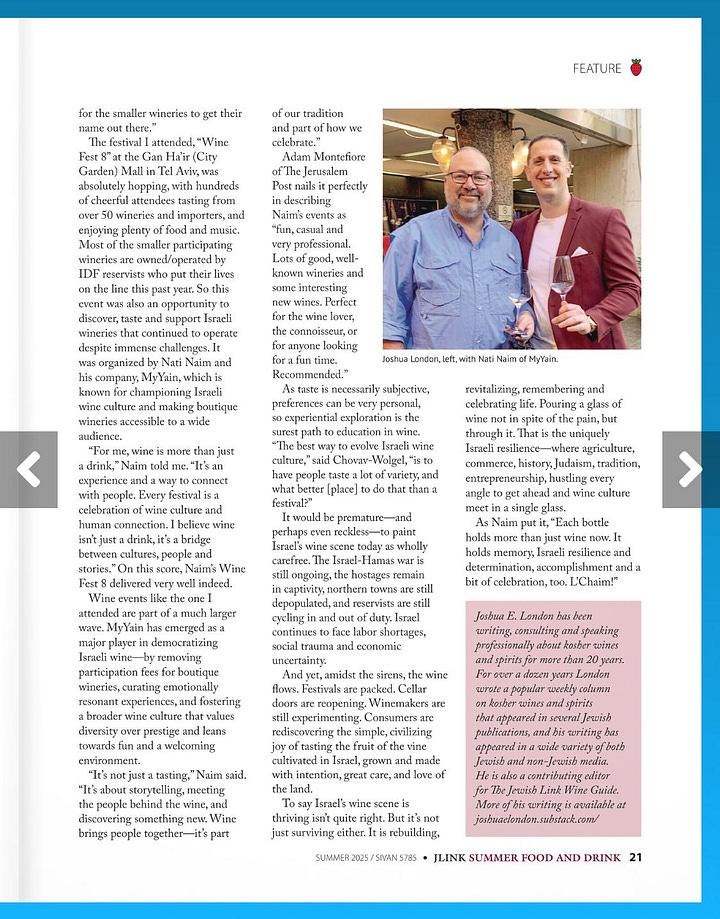
“Israel’s wine culture today, and really for the past decade or so,” notes Itai Munitz, owner and winemaker at Munitz Winery in Kfar Yedidia, “is evolving quite fast.”
Mainly, this evolution, according to Munitz, is due to the tens or so new wineries that emerge each year in Israel. Undoubtedly, Israel’s reputation for entrepreneurial energy, stubborn can-do persistence, and national resilience in the face of seemingly insurmountable challenges adds to the sense of purposeful change within the wine community.
“Clearly from the production side,” says Lewis Pasco, founding winemaker of the Pasco Winery in Mishor Adumim, “there's more good and perhaps even great wine than ever before.”
“Evolving” was also the primary descriptor of Israel’s wine culture from Yechiel Chovav-Wolgel, part of the winemaking team at Agur Winery (in Moshav Agur in the Elah Valley) and the Winery Sommelier at the Jerusalem Wineries. He notes that he thinks “Israel is an outlier in terms of wine culture. If you look at average wine consumption outside Israel, the numbers pale in comparison to the consumption of many Orthodox Jews, simply thanks to the many occasions where wine is the mode of celebration and observance. Having said that, in terms of ‘culture’ there is a ways to go.”
“I think most wineries are beginning to understand, slowly but surely, that the Israeli climate is more suitable for other grape varieties than Cabernet Sauvignon and Merlot,” Munitz opines, “and also, I think we are creating lighter red wines, reds that are not necessarily aged in oak.”
After all, Munitz notes, “we have here basically two seasons. Winter is maybe 2-3 months, but the rest of the year is actually summer. So, a lot of folks don't like to drink heavy red wines during summertime.”
Chovav-Wolgel concurs, “there is a lot more lighter, yet complex and well made, red wine on the market. These are great for most of the year here when it is too hot for a heavy red.” He also thinks there is “much more movement towards varieties that come from a hotter climate, similar to what we have here. Much more Mediterranean varieties, and of course there is much progress being made on the indigenous and endemic variety front.” Hence the increasing exploration, mostly very successful, of grape varieties like Argaman, Bittuni, Marawi/Hamdani, Jandali, and Dabouki, among others.
“On a smaller scale,” notes Chovav-Wolgel, “I've seen some creativity on the rosé front, with a decent amount of very different and unique offerings. This and the nascent influx of blanc de noir, are both likely due to the local climate as well.”
Pasco thinks Israel is “still getting the ground under our feet for white wine varieties and styles, and I wish we had a few more white cultivars to play with that suit our warmer climate (compared to Europe),” but “I think the Israeli wine culture is doing well” overall.
“Among white wines I see a trend towards insipid in the lower price whites,” Pasco added. “Very few are making whites at the 40–50 NIS range of the quality and characters I used to make for Recanati (non-reserve) Chardonnay and Sauvignon Blanc. The mid-range reds are better in my opinion, both vis-à-vis quality and variety of types. The growth of really good GSMs [Grenache, Syrah, and Mourvèdre] or similar Rhône-style blends, of varietal Cab Franc nicely expressed — those are really encouraging.”
The domestic wine scene “is very influenced by the public mood,” suggests Munitz, “and unfortunately since Oct 7th [2023] there have been a lot of ups and downs.”
“While many are visiting wineries and festivals,” Chovav-Wolgel added, “they are purchasing less. Everything is more expensive now, and people are reluctant to pay a premium.”
“Wine tourism is almost surely down,” Pasco confirmed. “I’ve had appeals from some with beautiful new facilities and visitor centers that are grossly underused and not generating income as hoped.”
The wine festival and wine party circuit, however, seems to be going from strength to strength.
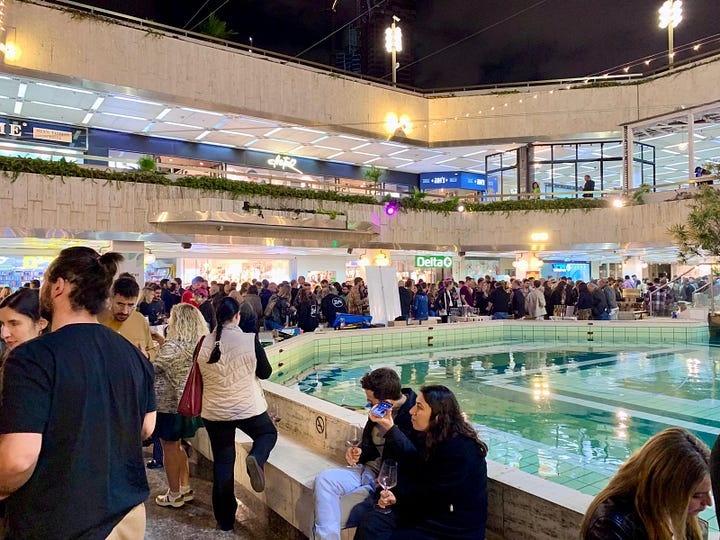
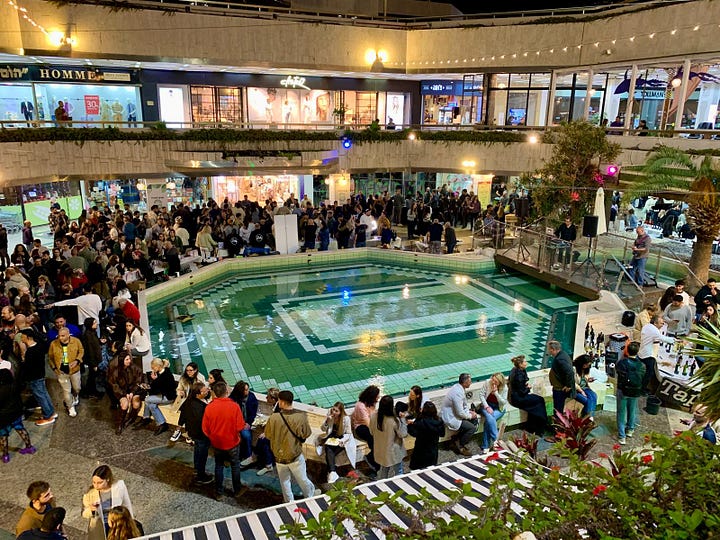
“In recent years, wine parties have become a central feature of Israeli leisure and culinary culture,” Sivan Catz, a longtime blogger, wrote in a recent blogpost. Her blog is called יצאתי לשופינג...תכף אשוב “Yatzati le-shopping... techef ashuv”, meaning “I went shopping... be right back.” “These events, combining wine tastings, music, art, and food, attract,” she asserts, “a diverse crowd in search of unique and enjoyable experiences.”
These wine festivals and parties have been “a growing scene in the last 5-6 years,” notes Munitz, and they represent a distinct aspect of Israeli wine culture. “A lot of people attend them looking for new and exciting wineries,” he notes, “or to revisit wineries they already know to see what's new.”
“I don't know that it's reflective of society and or culture,” Chovav-Wolgel observes, “but they are absolutely a success. There are many festivals happening, and they all seem to be packed. It's a great way for the smaller wineries to get their name out there.”
The festival I attended, “Wine Fest 8” at the Gan Ha’ir (City Garden) Mall in Tel Aviv, was absolutely hopping with hundreds of happy and cheerful attendees tasting from over 50 wineries and importers, along with plenty of food and music. Most of the smaller participating wineries are owned/operated by IDF reservists who put their lives on the line this past year.
So this event was also an opportunity to discover, taste, and support Israeli wineries that continued to operate despite immense challenges. It was organized by Nati Naim and his company, MyYain, which is known for championing Israeli wine culture and making boutique wineries accessible to a wide audience.
“For me, wine is more than just a drink,” Naim tells me, “It’s an experience and a way to connect with people.” Indeed, “Every festival is a celebration of wine culture and human connection,” he says. “I believe wine isn’t just a drink—it’s a bridge between cultures, people, and stories.” On this score, Naim’s Wine Fest 8 delivered very well indeed.
Wine events like the one I attended are part of a much larger wave. Naim’s company, MyYain, has emerged as a major player in democratizing Israeli wine — by removing participation fees for boutique wineries, curating emotionally resonant experiences, and fostering a broader wine culture that values diversity over prestige and leans towards fun and a welcoming environment over stuffiness or snobbery.
“It’s not just a tasting,” Naim says. “It’s about storytelling, meeting the people behind the wine, and discovering something new. Wine brings people together — it’s part of our tradition and part of how we celebrate.”
Adam S. Montefiore of The Jerusalem Post nails it perfectly in describing Naim’s events as “fun, casual and very professional. Lots of good, well-known wineries and some interesting new wines. Perfect for the wine lover, the connoisseur, or for anyone looking for a fun time. Recommended.”
As taste is necessarily subjective, wine preferences can be very personal, and experiential exploration is the surest path to education in wine. “The best way to evolve Israeli wine culture,” agrees Chovav-Wolgel, “is to have people taste a lot of variety, and what better to do that than a festival.”
It would be premature — and perhaps even reckless — to paint Israel’s wine scene today as wholly carefree. The Iron Swords War is still ongoing, the hostages remain in captivity, northern towns are still depopulated, and reservists are still cycling in and out of duty. Israel continues to face labor shortages, social trauma, and economic uncertainty.
And yet, amidst the sirens and still-burning fields, the wine flows. Festivals are packed. Cellar doors are reopening. Winemakers are still experimenting. Consumers are rediscovering the simple, civilizing joy of tasting the fruit of the vine cultivated in Israel, grown and made with intention, great care, and love of the land.
To say Israel’s wine scene is thriving isn’t quite right. But it’s not just surviving either. It is rebuilding, revitalizing, remembering, and celebrating life. Pouring a glass of wine not in spite of the pain, but through it. That is the uniquely Israeli resilience — where agriculture, commerce, history, Judaism, tradition, entrepreneurship, hustling every angle to get ahead, and wine culture meet in a single glass.
As Naim put it, “each bottle holds more than just wine now. It holds memory, Israeli resilience and determination, accomplishment and a bit of celebration too. L’Chaim!”
”
About Me:
For more than two decades, I’ve been drinking, writing about, consulting on, and speaking professionally about kosher wines and spirits. For over twelve years, I penned a weekly column on kosher wines and spirits that ran in multiple Jewish publications, and my writing continues to appear in a broad range of Jewish and mainstream media, both in print and online.
In addition to writing, I frequently speak publicly, leading tutored tastings and hosting educational programs on kosher wine and spirits appreciation for audiences of all kinds. If you’re interested in commissioning articles, arranging tastings, booking events, or just wanting to connect, feel free to reach out at joshlondon246@gmail.com.
In what now feels like another lifetime, I also authored Victory in Tripoli: How America’s War with the Barbary Pirates Established the U.S. Navy and Shaped a Nation (John Wiley & Sons, 2005), a slice of early American history.
When not immersed in wines and spirits, I work in the charity and non-profit sector. I currently serve as Development Director for Yad Vashem UK Foundation. Previously a longtime Washington, D.C.–based lobbyist and pro-Israel advocate, I relocated to the U.K. with my family during the COVID era—and happily prefer life across the pond, despite the truly lamentable and frankly uncivilized shortage of kosher Beaujolais here. That said, I still make it back to the States from time to time.

